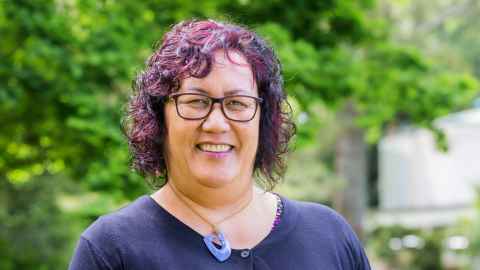Waitangi trip should be par for the course
5 February 2018
Opinion: One hundred and seventy seven years after the signing of Te Tiriti, Dr Aroha Harris wishes that a Prime Minister taking the time to pause among Māori and other New Zealanders on Waitangi Day wasn’t a cause for opinion or comment or media attention.

Over coffee a few days ago, a dear friend asked me what I thought about Jacinda spending five days in Te Tai Tokerau, my favourite part of the world because I’m from there (specifically Hokianga).
I shrugged my shoulders.
My dear friend persisted: “What do you think? It’s a great thing isn’t it?”
I shrugged again.
“So you don’t have an opinion? Really?”
In that moment, I genuinely had no opinion to offer. And my friend was right in thinking that meant I didn’t particularly care. On reflection, if I have an opinion it is probably that I wish there was no expectation that I should have one.
One hundred and seventy eight years after the signing of Te Tiriti, I wish that a Prime Minister – any Prime Minister – taking the time to pause among Māori and other New Zealanders, in Māori territories, on Waitangi Day or any other day, wasn’t a thing, wasn’t a cause for opinion or comment or media attention. In a similar vein, I wish that 125 years after New Zealand women were granted the vote we didn’t have to defend women holding public office.
I wish that when a Prime Minister announces her pregnancy, we can respond by congratulating her and her family and wishing them well. Fullstop. I wish there was no debate about the impact of her child-bearing prowess or her womanhood on her Prime Ministership, because I wish this – all of this, pregnant Prime Ministers and Prime Ministers on the ground in Te Nōta, the North, for five days straight – was normal: customary, well-established, what we’re used to. What we expect rather than what we’re surprised by or grateful for.
On reflection, if I have an opinion it is probably that I wish there was no expectation that I should have one.
I look forward to a time when Prime Ministers visiting and gathering with Māori, like Jacinda is doing, is a normal part of our calendar of events, that we need not spend time expressing how we feel about it and what it might mean, but instead focus on the issues and business of the day and the outcomes of the engagements. The idea of governments meeting with Māori chiefs is not a novel one.
Even in the 1830s, when James Busby was Resident Magistrate, annual hui were proposed as a venue for law and decision-making. At the 1860 Kohimarama conference, the government promised to conference annually with Māori. As Premier in the 1890s, Richard Seddon made many well-known visits to Māori communities. Through these and similar engagements, Māori fully expected to be more actively involved in government decision-making. It never happened. But Māori expectations have remained, and remain, unfulfilled.
I am sure Jacinda’s five days in Te Nōta is as intrepid as the visits with Māori of Prime Ministers past. And, like others before her, she is not alone. She has some solid Māori MPs around her who are no doubt feeling the weighty responsibility of supporting her to have a successful Waitangi stay. Thinking positively about the team, and not just the Prime Minister on her own, I am hopeful for genuine transformative action to alleviate the oppressiveness of the grinding economic and social poverty that is too normal in too many Tai Tokerau homes, the historical net result of local and national policies, and economic exploitation, which shepherded Māori into society’s margins.
Jacinda’s 2018 visit to Waitangi and the North may be seen as part of a long and complex history of iwi Māori attempting and advocating to hui with Premiers, Prime Ministers, and governments on Māori territories, and in pursuit of Māori goals. These long historical roots might be more visible if we cared enough to (a) look for or notice them, and (b) come to know them.
I hope Jacinda’s Waitangi is useful and worthwhile. I hope it is infused with the kinds of challenges that spur her to ensure it bears fruit – genuine political fruit, that might finally deliver the kind of sustained and grounded relationships with governments that Māori have long sought, within which five-day visits are par for the course, and through which we can all do the mahi (work) together.
Dr Aroha Harris is a senior lecturer in History at the University of Auckland. Her current projects reflect her interest in Māori and iwi histories of Māori policy and community development in the twentieth century.
This article reflects the opinion of the author and not the views of the University of Auckland.
Used with permission from Newsroom, Waitangi trip should be par for the course published on Monday 5 February 2018.